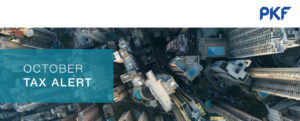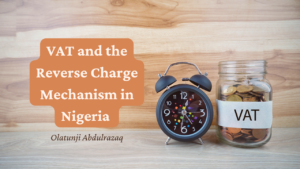Overview of Angolan Tax System

Rogério Fernandes Ferreira is Founding Partner, Mónica Respício Gonçalves is Senior Associate, Marta Machado de Almeida is Senior Associate, José Mègre Pires is Associate and Francisca de Landerset Gomes is a Trainee Lawyer at RFF & Associados, Lisbon
I. General Information
Angola has a schedular tax system with several taxes on income earned by corporations and/or individuals. The taxes on income currently in place are the industrial tax, the work-related income tax, the investment income tax and the real estate tax (levied on income derived from immovable property). The taxes on consumption are consumption tax and customs duties. The taxes on property are real estate tax (levied on the holding of immovable property), property transfer tax (tax on the onerous transfer of immovable property) and tax on inheritances and gifts. Additionally, stamp duty, which includes a 1{780f53c297e2c008074d23b865a0ce0b35a4f08852d8e1e49466a5a902c4e44e} turnover tax, is levied on certain acts (namely those related to the financial system).
Official Currency
Angolan Kwanza (AOA)
Foreign Exchange Restrictions
Foreign exchange operations in Angola are subject to Angola National Bank’s (BNA) control. Import and export of currency can only be made under certain requirements. Angolan residents can carry up to $15,000 (or equivalent in other currency) when travelling, while non-residents in Angola are limited to carry a maximum of $10,000 (or equivalent). Bank transfers to foreign bank accounts up to an amount of $300,000 are not subject to any restrictions as long as the payments are made pursuant to contracts not exceeding that amount. Bank transfers to foreign bank accounts exceeding the $300,000 threshold are subject to prior approval and licensing by the BNA.
Business Entities
Main business entities in Angola are limited liability companies (sociedades por quotas) and joint stock companies (sociedades anónimas). It is also possible for a business to incorporate through a “single-person company” (sociedade unipessoal). Additionally, foreign companies typically operate in Angola through subsidiaries, branches, representation offices and consortium agreements (partnerships).
Interest Rate
LUIBOR (Luanda Interbank Offered Rate) is currently set at 9.67{780f53c297e2c008074d23b865a0ce0b35a4f08852d8e1e49466a5a902c4e44e}.
Accounting Principles
The Angolan accounting system is governed by the General Accounting Plan of Angola (PGCA), which is mandatory for commercial companies and public companies. Financial institutions are, however, governed by the Chart of Accounts for Financial Institutions (CONTIF), which follows the IAS and the IFRS.
Tax Incentives
Subject to prior approval by the National Agency for Private Investment (ANIP), private investors in Angola are entitled to industrial tax, customs duties, property transfer tax and dividend withholding tax exemptions. Tax incentives may vary depending on the amount of the investment, location of the investment and the economic impact of such investment.
Tax Year
The tax year runs from January 31 to December 31.
Double Tax Agreements
To date, Angola has not concluded any double taxation agreements.
II. Tax Reform
On March 15, 2011, Presidential Decree 48/11 was published, containing the government’s guidelines and policy to be followed in the tax reform process. Under this Decree, the reform process is carried out by an autonomous body — the Executive Project for the Tax Reform (“PERT”) which includes a special unit called Technical Executive Unit for the Tax Reform (“UTERT”), divided into six areas (tax system; tax justice; tax administration; human resources; IT; and communication and marketing), responsible for conducting day-to-day activities. The reform process is established as a five-year project, with the goal of revising the tax system (excluding taxes applicable to the oil and mining sector), reducing tax rates and broadening tax bases. The main changes that may be expected under the government’s guidelines are the introduction of a global tax system to replace the several taxes on income and the introduction of a VAT-type tax to replace the current consumption tax.
III. Business Taxation
Residence
A business will be deemed as a resident in Angola if its domicile, head office or effective management is located in Angola.
Basis
Resident businesses will be subject to tax on their profits, whether obtained in Angola or abroad (worldwide taxation).
Taxable Income
Taxable income of a business is broadly defined as to include all earnings and gains resulting from any activity carried out by a business, be it normal or occasional, principal or secondary, minus all the costs or losses necessary to obtain the earnings or gains. The costs or losses necessary to obtain the earnings or gains will not be considered for purposes of taxable income for taxpayers from Group B.
Losses
Losses can be deducted from the taxable profits of one or more of the following three taxable years. No carry-backward of losses is allowed. Limitations are foreseen in case the losses are related to an exemption or reduced rate period.
Rate
Business income is subject to tax at a general tax rate of 30{780f53c297e2c008074d23b865a0ce0b35a4f08852d8e1e49466a5a902c4e44e}. However, a reduced 15{780f53c297e2c008074d23b865a0ce0b35a4f08852d8e1e49466a5a902c4e44e} tax rate shall be applicable to agriculture, aquaculture, aviculture, livestock, fishing and forestry activities. Taxpayers from Group B that have organized accountancy are subject to a tax rate of 6.5{780f53c297e2c008074d23b865a0ce0b35a4f08852d8e1e49466a5a902c4e44e} over its turnover.
A. Compliance Requirements
Filing Tax Returns
Industrial tax returns (Modelo 1) must be submitted by companies included in Group A by the end of May. Companies framed in Group B must submit industrial tax returns by the end of April.
Payment
Industrial tax is due when submitting the tax return and on the same deadline. Provisional industrial tax of the previous month’s turnover is due on a monthly basis. The provisional industrial tax rate applied to sales is 2{780f53c297e2c008074d23b865a0ce0b35a4f08852d8e1e49466a5a902c4e44e} and the rate applied to services provision is 6.5{780f53c297e2c008074d23b865a0ce0b35a4f08852d8e1e49466a5a902c4e44e}. Taxes are paid in the tax offices through a tax assessment document (DLI). Upon payment, the taxpayer will be provided with a revenue collection document (DAR), which serves as proof of payment.
Penalties
Angolan General Tax Code provides for a general penalty of 35{780f53c297e2c008074d23b865a0ce0b35a4f08852d8e1e49466a5a902c4e44e} of the tax due, with a minimum of AOA5,000. Additionally, each tax code provides for specific penalties (pursuant to the Industrial Tax Code, a 35{780f53c297e2c008074d23b865a0ce0b35a4f08852d8e1e49466a5a902c4e44e} penalty is levied on the value of the tax due that was not paid or was overdue).
Rulings
Although taxpayers are legally entitled to obtain binding rulings from the tax authorities, practice shows that said rulings are not common.
IV. Withholding Taxes
Dividends
Payment of dividends is subject to investment income tax withholding at a 10{780f53c297e2c008074d23b865a0ce0b35a4f08852d8e1e49466a5a902c4e44e} tax rate. If dividends are paid regarding shares admitted to negotiation in a regulated market, a reduced tax rate of 5{780f53c297e2c008074d23b865a0ce0b35a4f08852d8e1e49466a5a902c4e44e} is applied. Dividends paid to resident companies in respect of a minimum participation of 25{780f53c297e2c008074d23b865a0ce0b35a4f08852d8e1e49466a5a902c4e44e} held for more than one year are exempt from withholding tax.
Capital Gains
Capital gains are subject to a 10{780f53c297e2c008074d23b865a0ce0b35a4f08852d8e1e49466a5a902c4e44e} tax rate for investment income tax purposes. A 50{780f53c297e2c008074d23b865a0ce0b35a4f08852d8e1e49466a5a902c4e44e} taxable basis exclusion is allowed in certain situations. Therefore, in these cases, the effective tax rate is 5{780f53c297e2c008074d23b865a0ce0b35a4f08852d8e1e49466a5a902c4e44e}.
Interest
Payment of interest in respect of bonds or financial instruments are subject to investment income tax withholding at a 10{780f53c297e2c008074d23b865a0ce0b35a4f08852d8e1e49466a5a902c4e44e} tax rate. Interest from shareholders loans or any sort of allowance made by shareholders to the companies is also subject to withholding at a tax rate of 10{780f53c297e2c008074d23b865a0ce0b35a4f08852d8e1e49466a5a902c4e44e}. Interest from shares admitted to negotiation in a regulated market is subject to a withholding tax at a reduced tax rate of 5{780f53c297e2c008074d23b865a0ce0b35a4f08852d8e1e49466a5a902c4e44e}.
Royalties
Payment of royalties is subject to investment income tax withholding at a 10{780f53c297e2c008074d23b865a0ce0b35a4f08852d8e1e49466a5a902c4e44e} tax rate. Consideration for the use of industrial, commercial or scientific equipment is regarded as royalty payment.
Other
In 2014, payments for management and technical assistance services remained subject to a withholding at a 3.5{780f53c297e2c008074d23b865a0ce0b35a4f08852d8e1e49466a5a902c4e44e} or 5.25{780f53c297e2c008074d23b865a0ce0b35a4f08852d8e1e49466a5a902c4e44e} tax rate (depending on whether the service is related to immovable property or not). As of January 2015, a fixed withholding industrial tax rate amounting to 6.5{780f53c297e2c008074d23b865a0ce0b35a4f08852d8e1e49466a5a902c4e44e} applies to non-resident entities providing services to Angolan-based entities.
Profit from Permanent Establishment
Remittance of profits from permanent establishment of non-resident entities in Angola is subject to a 10{780f53c297e2c008074d23b865a0ce0b35a4f08852d8e1e49466a5a902c4e44e} investment income tax rate. However, if the profit was obtained from shares admitted to trading on a regulated market, a reduced tax rate of 5{780f53c297e2c008074d23b865a0ce0b35a4f08852d8e1e49466a5a902c4e44e} is applied during the five years after the Income Tax Code enters into force.
V. Work-Related Income Taxation
Residence
Residence is not defined in Angolan tax law as regards the taxation of work-related income.
Basis
Angolan individuals are taxed on their Angola-sourced work-related income (typically activities developed in the country).
Taxable Income
Taxation of work-related income is now separated by groups, depending on the nature of the income. The income of employees from both the public and private sectors is framed in Group A. Self-employed and management activities are taxed according to the rules of Group B. Finally, industrial and commercial activities, which are in the minimum profit list, are included in Group C.
Non-Taxable Income
Some types of income are expressly excluded from taxation. Child benefits paid by employers are not subject to taxation if the amount of the benefit is equal or inferior to 5{780f53c297e2c008074d23b865a0ce0b35a4f08852d8e1e49466a5a902c4e44e} of the income basis. Also, the compensation regarding the rescission of the employment agreement is not subject to taxation. Food and transport allowances are also excluded from taxation up to a monthly maximum of AOA30,000. Vacation and Christmas allowances are excluded if the correspondent amount is equal or inferior to 100{780f53c297e2c008074d23b865a0ce0b35a4f08852d8e1e49466a5a902c4e44e} of the basis wage. The reimbursement of travel and representation expenses incurred with activities developed on behalf of the employer is also not subject to taxation, if duly documented.
Exemptions
Military and paramilitary citizens are tax exempted regarding to income obtained with military services. Former combatants, war disabled people and relatives of deceased combatants are excluded from taxation regarding the income framed in Groups A and B. The general maximum income exemption is AOA34,450.
Taxable Amount
The calculation of the taxable amount and deductions to the gross income depends on the group in which the income is included.
Tax Rate
Self-employment income is taxed at a 15{780f53c297e2c008074d23b865a0ce0b35a4f08852d8e1e49466a5a902c4e44e} tax rate, whilst employment income is taxed at progressive rates up to 17{780f53c297e2c008074d23b865a0ce0b35a4f08852d8e1e49466a5a902c4e44e}.
A. Compliance Requirements
Rates
Entities that are obliged to assess and deliver the withholding tax amount from employees’ income regardless of the group in which they are framed, must submit their tax return by the end of February with the amounts paid and the identification of the employees to whom those amounts were paid. Self-employees with income that is not withheld must submit their tax return by the end of March.
Payment
Self-employees are required to pay the tax due at the same time as submitting the tax return, whereas employees are subject to final withholding tax, which must be paid by the employer in the relevant tax office by the end of the month following that to which the tax relates. Taxes are paid in the tax offices through a tax assessment document (DLI). Upon payment, the taxpayer will be provided with a revenue collection document (DAR), which serves as proof of payment.
Penalties
Late payment is subject to a penalty equal to 200{780f53c297e2c008074d23b865a0ce0b35a4f08852d8e1e49466a5a902c4e44e} of the tax due. In case of non-submission, missing or incorrect elements of the tax return, the taxpayer must pay a penalty determined according to the General Tax Code rules. Penalties amount in the case of a book-keeping delay, failure to preserve documents, lack of withholding tax and lack of delivery of the amount withheld.
VI. Consumption Tax
Taxable Transactions
Consumption tax is equivalent to an excise tax being levied, in general, on the production of goods, import of goods and provision of a wide range of selected services.
Taxable Persons
Consumption tax is due by the producer or importer of the good, or the service provider, although it is economically borne by the acquirer of the good or service.
Taxable Income
As a rule, the income subject to tax is the cost of producing the good, the customs value of an imported good or the price paid for the service.
Rates
Consumption tax rates vary significantly depending on the product, ranging from 2{780f53c297e2c008074d23b865a0ce0b35a4f08852d8e1e49466a5a902c4e44e} to 30{780f53c297e2c008074d23b865a0ce0b35a4f08852d8e1e49466a5a902c4e44e}, despite the 10{780f53c297e2c008074d23b865a0ce0b35a4f08852d8e1e49466a5a902c4e44e} general tax rate. Consumption tax on services varies between 5{780f53c297e2c008074d23b865a0ce0b35a4f08852d8e1e49466a5a902c4e44e} and 10{780f53c297e2c008074d23b865a0ce0b35a4f08852d8e1e49466a5a902c4e44e}.
A. Compliance Requirements
Filing
Taxpayers must file a monthly tax return detailing all the operations performed during the previous month, with the assessment of the tax due.
Payment
Consumption tax is due when submitting the tax return and on the same deadline. Taxes are paid in the tax offices through a tax assessment document (DLI). Upon payment, the taxpayer will be provided with a revenue collection document (DRA) which serves as proof of payment.
Penalties
Late payment of the tax due is subject to a penalty equal to 50{780f53c297e2c008074d23b865a0ce0b35a4f08852d8e1e49466a5a902c4e44e} of the tax due.
VII. Other Taxes
Property Tax
Real estate owners are subject to tax at a 0.5{780f53c297e2c008074d23b865a0ce0b35a4f08852d8e1e49466a5a902c4e44e} rate over the tax value of the immovable property, as determined by law. In the case of rented real estate, a 15{780f53c297e2c008074d23b865a0ce0b35a4f08852d8e1e49466a5a902c4e44e} effective tax rate applies on the rental income.
Property Transfer Tax
On the onerous transfer of immovable property, a 2{780f53c297e2c008074d23b865a0ce0b35a4f08852d8e1e49466a5a902c4e44e} transfer tax rate is levied (tax due by the purchaser).
Estate Tax
Gifts and inheritances that operate the gratuitous transfer of property are subject to tax at a maximum tax rate of 30{780f53c297e2c008074d23b865a0ce0b35a4f08852d8e1e49466a5a902c4e44e}.
Social Security
Social security contributions amount to 11{780f53c297e2c008074d23b865a0ce0b35a4f08852d8e1e49466a5a902c4e44e} of the employee’s salary. The employer is liable for 8{780f53c297e2c008074d23b865a0ce0b35a4f08852d8e1e49466a5a902c4e44e}, while employees are liable for 3{780f53c297e2c008074d23b865a0ce0b35a4f08852d8e1e49466a5a902c4e44e}.
Stamp Duty
Stamp duty is levied on several acts and contracts. Additionally, businesses are also subject to stamp duty on all receipts issued, at a 1{780f53c297e2c008074d23b865a0ce0b35a4f08852d8e1e49466a5a902c4e44e} tax rate.
VIII. Tax Amnesty
The exceptional regularization of the recently approved tax debts regime is applied to debts regarding to the taxable period prior to December 31, 2012. This tax amnesty covers all values in debt related to taxes, plus late payment penalties, compensatory interest, judicial costs and penalties. Taxes include industrial tax, personal income tax, stamp duty tax, investment income tax and property tax.
For More Information
Rogério Fernandes Ferreira is Founding Partner, Mónica Respício Gonçalves is Senior Associate, Marta Machado de Almeida is Senior Associate, José Mègre Pires is Associate and Francisca de Landerset Gomes is a Trainee Lawyer at RFF & Associados, Lisbon.




